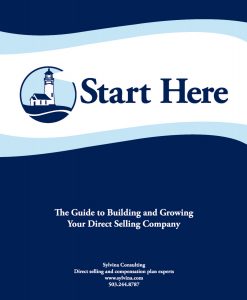 If you have a great idea for a new business, you may need some financial help to get your business off the ground. To get funding, you should think of yourself as a salesperson with potential investors as your customers.
If you have a great idea for a new business, you may need some financial help to get your business off the ground. To get funding, you should think of yourself as a salesperson with potential investors as your customers.
The best salespeople believe it’s smart to get to know your customers. If you are in search of investors, you would be wise to understand what’s important to them. In this video, we’ll tell you.
WIIFM
Investors want to know “what’s in it for me.” That’s WIIFM.
They are looking for investments with huge potential, opportunities for a five to ten times return within three to five years.
To learn more about what investors want, watch our informational video below.
Angel Investors or Venture Capitalists?
Venture Capitalists invest from a fund amassed with other people’s money. VCs usually invest millions of dollars. The total amount of money you are seeking will determine the type of investor that you will need.
If you need $1.5 million or less, you should be talking with Angels. Angels are high net worth individuals or successful businessmen and businesswomen who will be investing their own money.
Valuation
Investors will purchase a portion of your business for a fixed amount. The price for that portion should be a percentage of the valuation established for the business. Some say that valuation is in the eye of the beholder. Regardless, in your business plan, you should state the value of your business today as the sum of its book value (assets minus liabilities) plus projected business activity and growth for the next three years.
Don’t make the mistake of conservatively valuing your business or making ridiculous projections. If you’re not sure how to value your business, ask us at Sylvina Consulting. We can help you.
Crowdfunding
You may have heard about crowdfunding platforms like Kickstarter and Indiegogo.
Some of these platforms use an “all or nothing” rule which means unless you raise all of the funds requested, no money is collected. Other platforms don’t include this restriction.
Unlike Angels and VCs, crowdfunding contributors seek causes they believe in without expecting a long-term return. Instead, they agree to exchange a specific amount of money for a specific perk. Some of them are silly (like a hug) while others have tangible value. Most campaigns offer multiple perks.
Your Story
Steve Jobs at Apple was a master at delivering keynote addresses to introduce new products. His formula was to describe a problem you didn’t know existed and then to explain how the newest i-whatever solved that problem.
Jeff Lawson, the founder of Twilio, had serious trouble in pitching his product to investors when he focused on use cases of how the product could be used. When he changed his approach to describing the problem and how Twilio solved it, he raised $110 million.
Jeff explained, “The point isn’t how our product works. What matters is what it can do. The story arc makes a huge difference.”
Exit Events
Your prospective investors will want a time-frame set for exit.
Positive exits are mergers/acquisitions (M&A), shareholder buybacks, and initial public offerings (IPO). (A negative exit is “out of business” business).
A common exit strategy for Angel Investors with equity ownership is the sale of their shares to the company’s principal owner(s). If Angel Investors hold debt, they will exit with funds paid by the principal owners or by new owners if the business is sold or merged with another.
Most of the time VC-backed companies exit through a merger/acquisition rather than through an IPO. This means your business is much more likely to be acquired by another company than to have its shares sold to individual investors in an IPO.
Exit Strategies
Venture Capitalists make money in two ways. They receive management fees as a percentage of the fund and they also earn Carried Interest as a portion of the funds received during a liquidity event or exit. Because Carried Interest is larger for most liquidity events, VCs are especially interested in hearing about your exit strategies. In short, they want to know when and how much they should expect to receive as a return on their investment.
Angels don’t earn management fees, so they are concerned only about a liquidity event.
If you are seeking investors, while you may think you will own and operate the business forever, you need to be talking about your exit strategies, because investors need an exit.
In Their Shoes
If you were investing thousands of dollars into a new business to be operated by someone else, what type of return would you expect? I bet you would want a big one.
To have a successful business, I believe it’s wise to put yourself into the shoes of the current or future customers of your products or services. To secure funds from investors, be sure to do the same thing.

 Jay Leisner, the President of Sylvina Consulting, is a top compensation plan and direct selling expert, a trusted adviser to new and established network marketing and party plan companies. For more than 30 years, Jay has enjoyed assessing and improving network marketing, party plan and referral marketing companies across the globe.
Jay Leisner, the President of Sylvina Consulting, is a top compensation plan and direct selling expert, a trusted adviser to new and established network marketing and party plan companies. For more than 30 years, Jay has enjoyed assessing and improving network marketing, party plan and referral marketing companies across the globe.
Leave a Reply